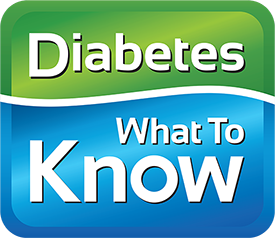A diabetes care and education specialist—often called a diabetes educator—is a healthcare professional trained to help you manage diabetes throughout your life. Most are nurses, dietitians, or pharmacists, and many hold the CDCES credential (Certified Diabetes Care and Education Specialist). They collaborate closely with your doctor or healthcare provider to give you the skills, strategies, and confidence you need to manage your condition day to day. You may have met with a diabetes educator when first diagnosed or taken an introductory class. But because diabetes is a lifelong, evolving condition, regular visits can make a big difference—long after the first diagnosis.
When to See a Diabetes Educator
The American Diabetes Association suggests meeting with an educator:
- At least once a year for a full review of your diabetes care.
- When medicines or doses change, or if your weight or A1C changes significantly.
- If you have frequent high or low blood sugars.
- When starting a new technology, such as a continuous glucose monitor (CGM) or insulin pump.
- When early signs of complications appear, such as heart, eye, or nerve problems.
- During major life transitions or stress (e.g., loss of a loved one, hospital discharge, changing doctors).
How They Can Help
Diabetes educators personalize their guidance to your needs, focusing on problem-solving skills so you can handle different situations confidently. Many people find that seeing a diabetes educator is helpful in managing their diabetes! They can help you:
- Stabilize blood sugar and reduce highs and lows.
- Update your meal plan to match your lifestyle.
- Get the most from diabetes devices (CGMs, insulin pumps, apps).
- Find safe ways to increase physical activity while staying in range.
- Reduce risks for long-term complications.
- Overcome barriers to taking medicines (including side effects).
- Develop coping strategies to deal with stress and daily challenges.
Proven Benefits
Research shows that people who work with a diabetes educator often experience:
- Improved A1C and weight management.
- Better quality of life.
- Fewer complications and lower healthcare costs.
Most insurance plans cover visits, but check your specific benefits.
How to Find One
If your physician or healthcare provider doesn’t have a recommendation, try these resources:
- Locate a CDCES at www.cbdce.org.
- Find accredited programs via the ADA or ADCES.
- Search for a dietitian with diabetes expertise at www.eatright.org.
Many offer telehealth appointments, which can help if you live in a rural area.
In summary: A diabetes educator can be a vital part of your care team—helping you adapt to changes, solve everyday challenges, and improve your long-term health outcomes through clear communication and teamwork with your doctors.
—
Sign up for our free diabetes education class here.
If you’d like to join a diabetes support group to learn and share with others, click here.
The medical information on Diabetes – What To Know’s website is provided as an information resource only. The content is not in any way intended to be nor should you rely on it as a substitute for professional medical evaluation, diagnosis, advice and treatment.

